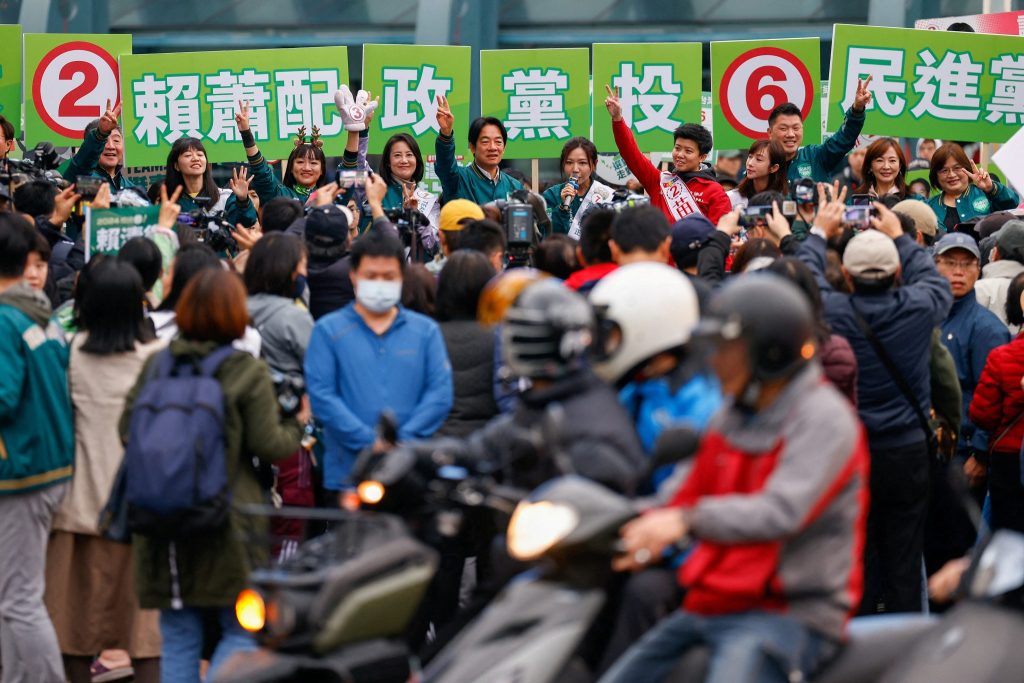The idea that the Communist Party of China is an urgent threat to democracy is commonplace in the West. The reality, for those who pay attention, is more complex.
The emergence of a non-democratic great power in Asia, and the economic and diplomatic patronage it provides, might make a difference at the margins to the evolution of political regimes in our region, especially at critical moments of political crisis or transition. But contemporary democratic regression and authoritarian consolidation in Asia is overwhelmingly driven by domestic political and socioeconomic conflicts — not the influence of China. There is little evidence that the Chinese government is making efforts to promote its governance model abroad whether through propaganda or subterfuge.
The idea that China’s economic success buoys elites in developing Asia with a dangerous vindication for authoritarianism is likewise a complete red herring. Illiberal elites from South Korea to Indonesia are far more likely to look to the experience of their own countries of authoritarian developmentalism in white-anting the shortcomings of liberal democracy — something they could and would do even if the ‘China model’ didn’t exist.
The principal exception to this, of course, is Taiwan — the survival of whose new but robust democracy ultimately will rest as much on political decisions made in Beijing as in Taipei. Alongside the devastating loss of life and risks of wider war that a Chinese invasion of Taiwan would bring, political reunification through force would necessarily entail regime change enacted through political repression on a terrifying scale.
That would be a tragedy both for China and Taiwan.
Taiwan is the jewel in the crown of the wave of democratisation that swept (albeit unevenly) across the region after the Cold War — exhibiting a more robust and competitive electoral environment than was evident in Japan and, arguably, less of the ideological and institutional residue of authoritarianism than its fellow post-Cold War democratiser, South Korea.
Turnout, a crude but nonetheless useful measure of popular engagement with politics, hovers around 75 per cent in Taiwanese presidential elections, high by world standards.
The best thing for Taiwan’s democracy is generally sober management of cross-Strait relations by all stakeholders, with a view to preserving the status quo for as long as possible. That status quo has been sustained by an understanding by Taiwan’s leaders of the dangers of painting Beijing into a political corner with overt assertions of independence, and an understanding from the mainland that the humiliation of being unable to dictate political outcomes in the democratic island are still far better than the catastrophic economic, and potentially military, costs of an invasion.
On both sides, including in the Tsai administration, there are those close to the centre of power that wish otherwise. But better judgement has so far prevailed.
Western politicians do Taiwanese democracy no favours in shifting Beijing’s political incentives by loudly asserting Taiwan’s autonomy on its behalf and elevating Taiwan’s importance as a focus of geopolitical competition with the United States.
Our two lead articles this week, previewing the presidential elections scheduled for 13 January, emphasise that within Taiwan, at least, some of the political heat has been taken out of the China question thanks to a convergence within the political mainstream towards broadly similar positions on cross-Strait issues, reflective of a consolidating public preference for the status quo. This has been marked by a moderation of the DPP’s appeals to pro-independence sentiment over its two terms in power under President Tsai Ing-wen, despite the sentiments that pulse within its inner circles, as well the KMT’s downplaying of the ‘reunification’ agenda — in recognition of the minimal appetite for it among the public.
With the China issue not looming as large as it has in previous polls, Taiwan’s social and economic challenges have come to the fore.
After eight years of DPP government, write Chung-min Tsai and Yves Tiberghein in the first of our two lead articles, ‘[a]nxieties about economic prospects and incomes, increases in rents … energy insecurity, and inequality dominate the political drift away from the government’.
The KMT has not been the straightforward beneficiary, though. Indeed, the big story of the campaign stretching through 2023 was the breakthrough of former Taipei mayor Ko Wen-je and his Taiwan People’s Party’s populist ‘none-of-the-above’ politics. ‘Pocketbook issues — including stagnant wages, a shortage of affordable housing and meagre career prospects — appear to attract more attention’ than relations with China in these polls, ‘particularly among the younger generation’ observes T.Y. Wang in our second lead article. Ko has ‘position[ed] himself as an anti-establishment outsider’, whose ‘straight-talk and terse soundbites are well-received among young voters’.
Ko’s chances of election were dashed by the collapse, in farcical circumstances, of an attempt to unite the anti-DPP candidacies on a single presidential ticket. With the anti-incumbent vote now split, Vice-President Lai Ching-te must be considered the frontrunner.
While the DPP and KMT once again are the leading contenders for the presidency they have monopolised since 1996, political observers will be closely watching the entrails of the results from 13 January for any signs of a shift towards a more complex party system marked by the permanent presence of a third party like Ko’s TPP. As young people feel the pinch of economic changes and political uncertainties, rates of youth turnout and the preferences of younger voters will be a key focus too.
Whatever the form of the next government, addressing those challenges will be an overriding political priority as Taiwan faces constraints on its international economic diplomacy, geopolitical risks to its growth model, and demographic challenges that will demand more openness to migration and international commerce.
The EAF Editorial Board is located in the Crawford School of Public Policy, College of Asia and the Pacific, The Australian National University.

